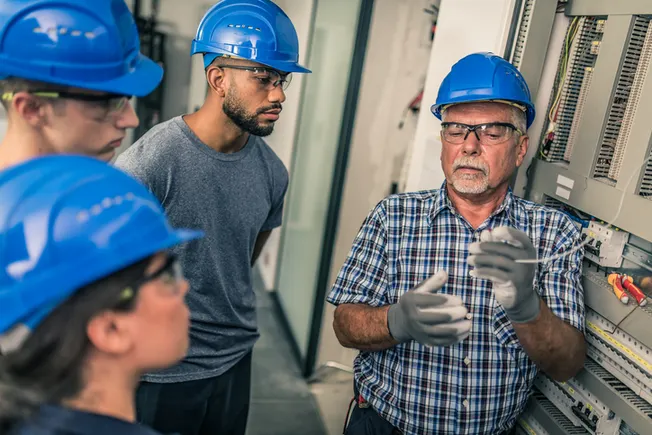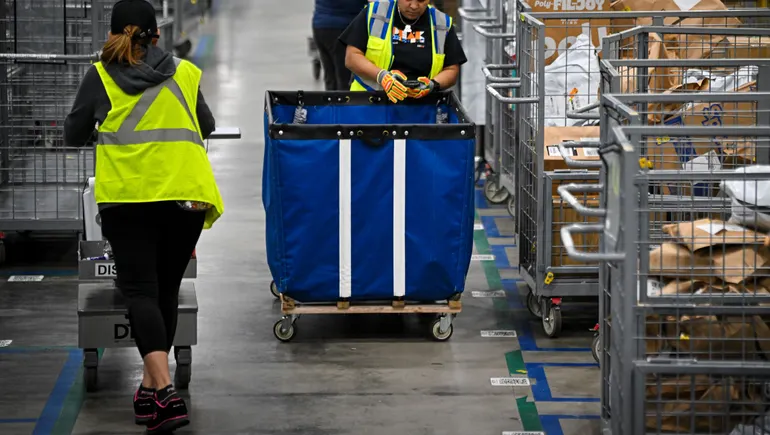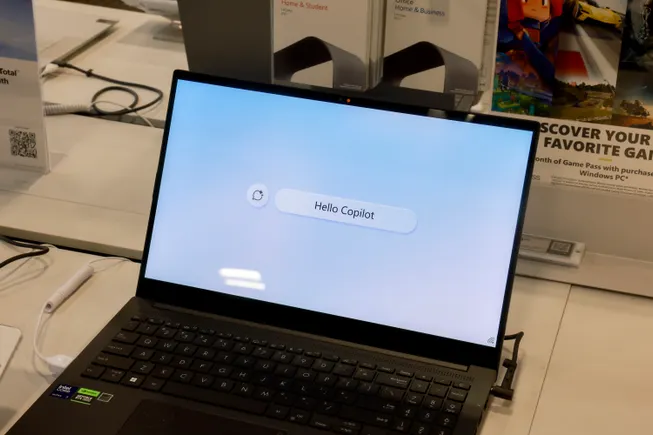DeVry University’s third annual report on upskilling in the U.S. workforce, Bridging the gap: Overcoming a silent standoff in America’s talent economy, returned this fall to reveal new insights about how workers and employers are navigating uncertainty in today’s workforce. The university partnered with independent research firm Reputation Leaders to commission a survey of over 1,500 workers and 500 hiring decision-makers, revealing how economic turbulence and unprecedented technological advancement are fueling uncertainty about the skills needed to future-proof one’s career.
“Amid growing fatigue and a lack of transparency around the skills needed to develop a future-ready workforce today, workers are burnt out—and it is more critical than ever that employers lean in to help bridge the gap,” said Dave Barnett, DeVry University’s chief administrative officer. “Without this deliberate, proactive effort, the risks around business growth, competition and continuity will only intensify.”
DeVry’s report identified three main points of tension with actionable takeaways for employers and workers to help bridge divergent perspectives and foster long-term growth.
Ending talent dissonance
While workers reported confidence in their current skills, employers expressed concern about workers’ ability to keep up. Although 85% of workers reported they are confident they do not need further qualifications to remain employable in the next five years, nearly seven in 10 employers cited concerns about their workforce lacking the skills needed to be successful over the same time period.
Workers’ perceptions also demonstrated a trend in pessimism and complacency amid the current economic landscape. Over half (51%) of workers cited a lack of personal reasons, such as motivation or skills, as a barrier to career advancement. Meanwhile, over 60% of employers cited a lack of motivation as the number one reason for layoffs when deciding between one worker or another.
This gap reflects an environment where workers feel disengaged, while employers are anxious but unclear about how to move forward. As hiring slows and upskilling lags, both sides must collaborate to create a shared pathway for success.
Tapping into uncultivated skill
Durable skills are seen as the key to job security, and this view is shared by the majority of workers (63%) and employers (78%). This agreement extends to a common understanding of the top skills and qualifications to stay relevant in tomorrow’s talent economy.
Employers identified critical thinking and problem solving, self-leadership and the ability to manage multiple demands, as well as interpersonal skills as the top three essential skills for success. Workers, while agreeing on the importance of critical thinking and problem-solving, prioritized the skilled use of AI and being savvy across many types of technology in their top three skills.
The main takeaway is that skills-based learning is here to stay. Technology and AI are just as important as ‘durable skills’ that lean into what technology can’t do (i.e., exercise nuanced judgment, demonstrate creativity).
Dr. Milton Mattox, CEO of the US Artificial Intelligence Institute and DeVry alum, shared his perspective on the future of AI in the workplace during a recent interview. “AI is not going to replace you, but someone who knows AI certainly will,” he noted.
Removing barriers to growth
“The future belongs to relentless learners, executors and builders,” added AJ Palermo, founder & CEO of Primoria AI and DeVry alum. Palermo emphasized how traditional degrees alone are no longer sufficient. Instead, adaptability, digital fluency and cross-disciplinary skills are what he believes to be critical for job security and retention.
Universities like DeVry that offer flexible non-degree programs are flagship institutions that open educational opportunities for people at any stage of their careers. It’s clear that both workers and employers understand the value of lifelong learning to advance professional development, but without a clear path forward for upskilling and reskilling, organizations and their people are facing a growth gridlock.
As a champion of success for both employers and workers, DeVry believes the solution starts with rebuilding trust and transparency via tailored education that meets the moment. The university is committed to creating accessible and enduring paths to personal and professional advancement. Addressing these topics head-on will foster a more confident, collaborative and prepared workforce – while creating positive economic outcomes.
To read the full report, click here.






Leave a Reply